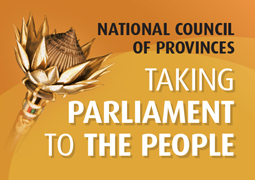
In the midst of countless challenges, one school is showing that with determination and hard work anything is possible. For Zwelakhe Senior Secondary School situated amongst the majestic hills of Ntabankulu Municipality in the Eastern Cape, the challenges teachers and learners have faced have only served to make their desire for education even stronger.
Last year, the school achieved a 93% matric pass rate and has, for the past five years, performed above an 80% pass rate. This is despite the huge infrastructure challenges facing the school, the district and the province.
This information was shared with permanent delegates of the National Council of Provinces, who are currently undertaking a report-back session in the Eastern Cape to assess the implementation of recommendations made by the NCOP during its Taking Parliament to the People programme in 2016.
The school has 1 183 leaners registered for this school year, but has only 14 classrooms. This translates to an average of 84 learners in a classroom. “It is unacceptable that 84 learners can be accommodated in one classroom. This undermines the constitutionally enshrined right to quality education,” said Mr Eddie Makue, the leader of the NCOP delegation.
The District Director from the Department of Basic Education informed the delegation that 32 mud schools are still operating. The delegation urged all spheres of government to urgently work together to deal effectively with inadequate infrastructure across the province, which is hampering the creation of a conducive learning environment.
The principal of Zwelakhe Senior Secondary School, Mr Moyisi Dandala, said parent involvement in the school through the school governing body (SGB) is one of the reasons for the school’s success. “The parents contributed money to build four new classrooms, showing the level of commitment and value that the parents place on the education of learners,” Mr Dandala said.
Another infrastructure challenge was the lack of ablution facilities, with only 12 pit latrines to cater for the entire school population. “The school, SGB and Department of Basic Education must work earnestly with the school to ensure that leaners are given an enabling environment,” Mr Makue said.
The delegation criticised the poor implementation of recommendations made during the TPTTP programme, especially in the Alfred Nzo District with only 20% of recommendations implemented. To remedy this, the delegation gave the education department until the end of April to implement the recommendations. The provincial education portfolio committee has been mandated to keep a closer oversight over the implementation of the recommendations.
Malatswa Molepo
14 March 2018

